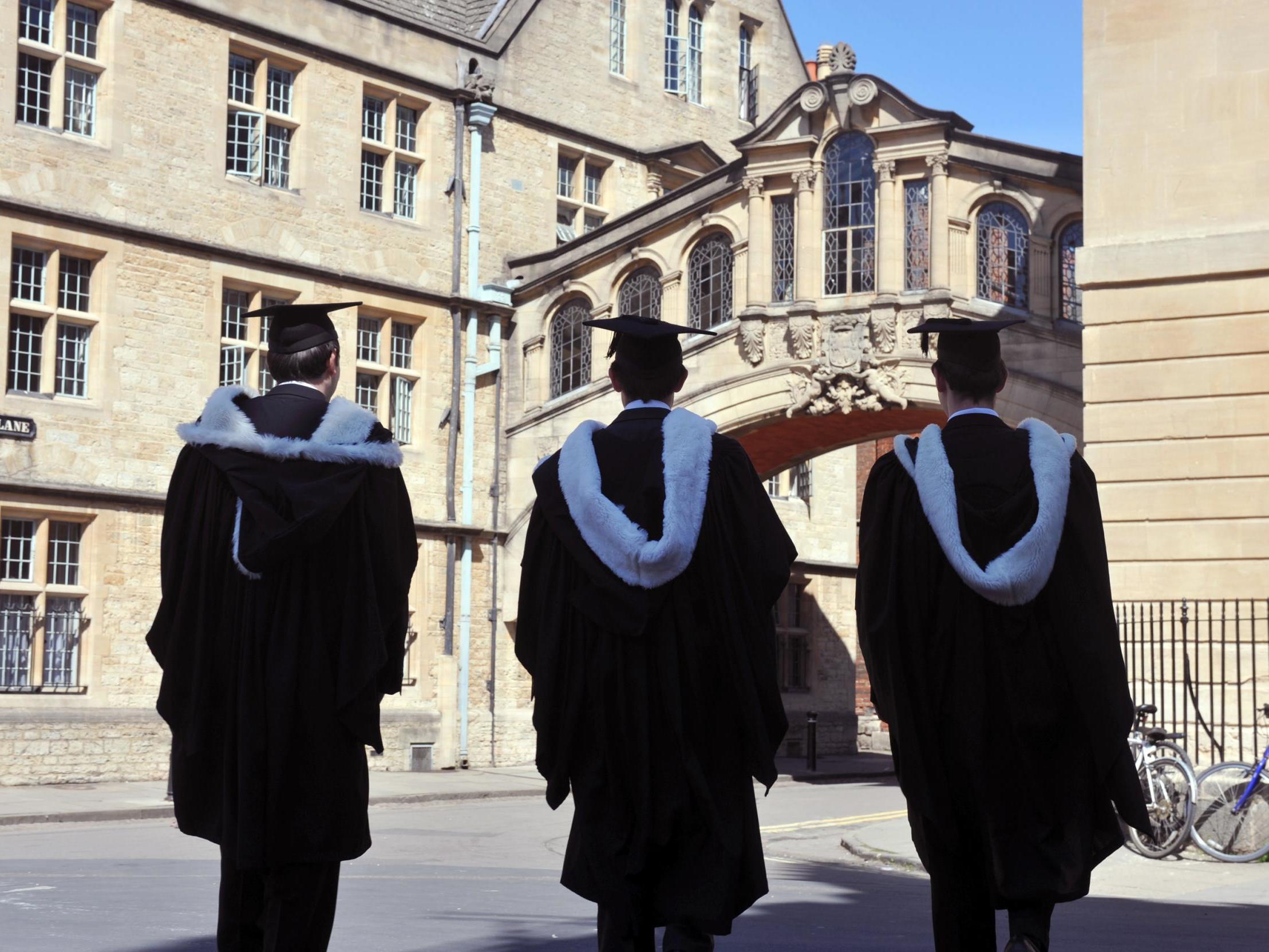Oxford University's measures to help disadvantaged students don't go nearly far enough
While recent initiatives to redress inequality are helpful, we need significantly more radical measures from universities to reform higher education if we want to effect real change


The University of Oxford has become the latest higher education institute to attempt to remedy its eltisit reputation, by announcing plans to provide places to talented school-leavers from disadvantaged backgrounds who lack the required grades.
It is promising that by 2023, one in four undergraduates will be from the UK’s most underrepresented backgrounds, with the University implementing this drastic change via two new access schemes: Opportunity Oxford and Foundation Oxford. These include initiatives such as a free year of study for financially-challenged students, and a residential study programme for school-leavers who require additional support.
Oxford follows in the footsteps of Cambridge University, which, for the first time this summer, is participating in the UCAS system of “adjustment" which allows students who have achieved higher grades than expected on results day, to be reconsidered by other institutions. And Warwick University also announced plans this month, to spend £10m on a program called Warwick Scholars, which is aimed at recruiting underprivileged talent from within a 30-mile radius of its campus.
But these moves are nothing short of overdue. Universities have long resisted attempts at reform and modernisation, whilst simultaneously positioning themselves as change-makers at the forefront of societal progress.
With astronomical tuition fees, declining applicants, and mounting calls from students to decolonise their curriculum by including texts and teaching beyond the white and western intellectual tradition, perhaps institutions are finally realising that staying relevant – and full – means attracting a diverse range of talent, and shedding their antiquated reputations.
There’s a whole host of evidence to suggest that higher education institutions really do perpetuate privilege and discrimination.
A 2018 study found that black students are 1.5 times more likely to drop out of university than their white and Asian counterparts, with further research reported by this paper, showing that Oxford, Warwick and Bristol admit fewer than 3 per cent of poor white students. Durham University offers places to just 4 per cent.
Additionally, a 2016 survey of 600 black teaching professionals by the University and College Union found insidious forms of racism are common in higher-education.
Bias towards minority students exists at the very top level – when students are interviewed, and upon acceptance of an offer – lingering over them around for three years like a persistent cold.
Last year, the Sutton Trust found that Oxford and Cambridge recruit more students from eight, mainly-private schools, than almost 3,000 other UK state schools put together. So it’s maddeningly frustrating and borderline ludicris to hear that the super-privileged are concerned that these new access schemes will somehow detract opportunities away from the wealthiest, most well-connected students in the country.
And it’s just as infuriating that some believe that with the arrival of these new schemes, there’s nothing more to be done.
Anthony Wallersteiner – head of Stowe School (where day fees for boarders start at £9,128 per term), revealed that many of his parents are now worried about admission chances for private school pupils. Wallersteiner likened positive access schemes to “social engineering” and believes that the criticism of private school pupils is similar to “antisemitic abuse” – yes, you read that correctly.
But we need more radical measures from universities to reform higher education if we want to affect real change.

Name-blind applications, school-blind applications and a target-driven quota system to admit a certain proportion of disadvantaged and minority students per year, would be a start.
Cambridge’s decision to participate in “adjustment” is a step in the right direction, but it’s hardly ground-breaking: they’re offering just 100 places under the new scheme, and it’s only for students who have already gone through their interview process.
Cambridge also refuses to participate in “clearing which is the process that allows students who didn’t get in to a university to take up spare places after they receive their exam results.
Other top Universities that shun clearing include: the University of Oxford, Imperial College London, Durham University and the University of St Andrews.
The recent initiatives at Oxford, Warwick and Cambridge are a much-needed start, but if universities want to reflect the communities they serve, and retain their reputations as bastions of change, they need to continue to strive for greater inclusion. And this will ensure national standards are raised, not lowered.
Join our commenting forum
Join thought-provoking conversations, follow other Independent readers and see their replies
Comments
Bookmark popover
Removed from bookmarks